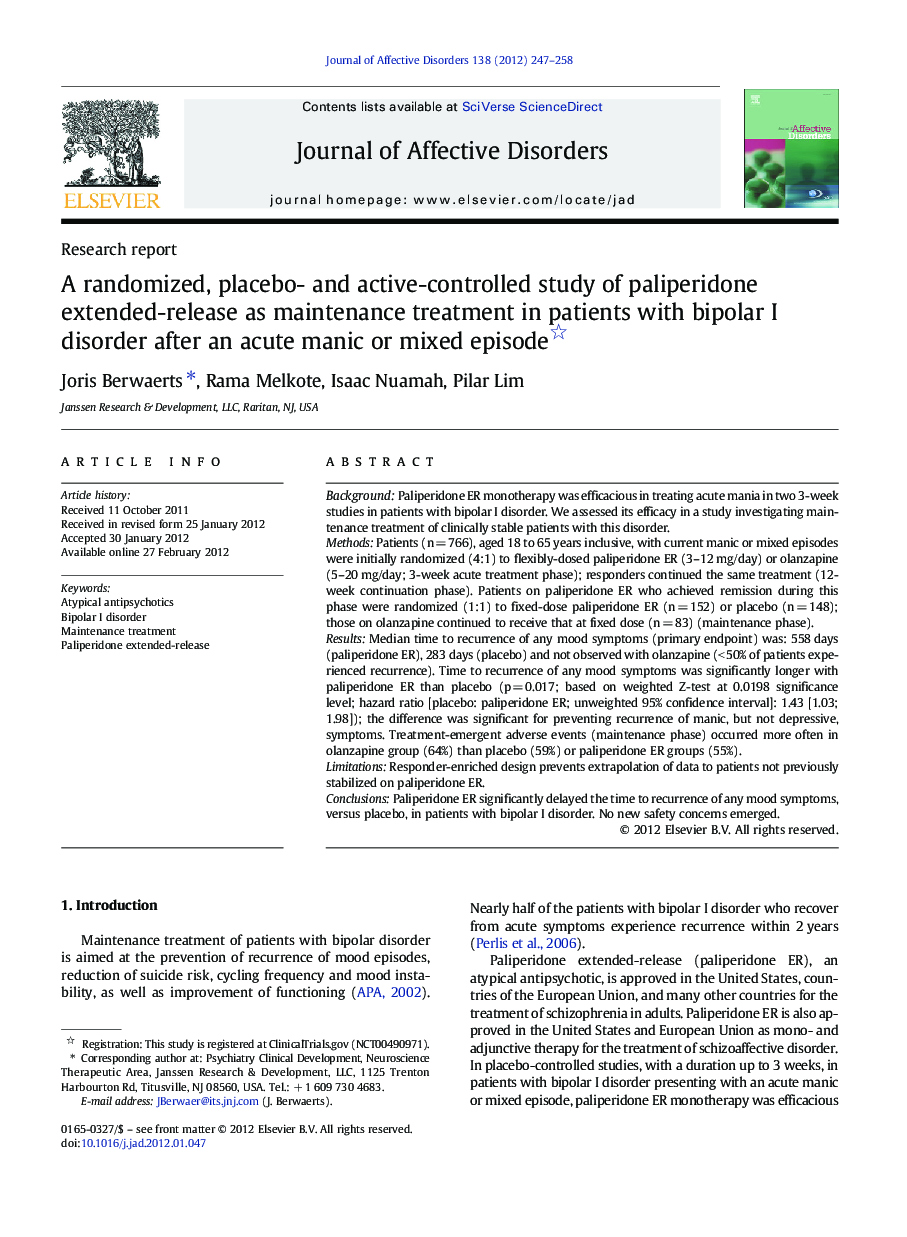| Article ID | Journal | Published Year | Pages | File Type |
|---|---|---|---|---|
| 6235900 | Journal of Affective Disorders | 2012 | 12 Pages |
BackgroundPaliperidone ER monotherapy was efficacious in treating acute mania in two 3-week studies in patients with bipolar I disorder. We assessed its efficacy in a study investigating maintenance treatment of clinically stable patients with this disorder.MethodsPatients (n = 766), aged 18 to 65 years inclusive, with current manic or mixed episodes were initially randomized (4:1) to flexibly-dosed paliperidone ER (3-12 mg/day) or olanzapine (5-20 mg/day; 3-week acute treatment phase); responders continued the same treatment (12-week continuation phase). Patients on paliperidone ER who achieved remission during this phase were randomized (1:1) to fixed-dose paliperidone ER (n = 152) or placebo (n = 148); those on olanzapine continued to receive that at fixed dose (n = 83) (maintenance phase).ResultsMedian time to recurrence of any mood symptoms (primary endpoint) was: 558 days (paliperidone ER), 283 days (placebo) and not observed with olanzapine (< 50% of patients experienced recurrence). Time to recurrence of any mood symptoms was significantly longer with paliperidone ER than placebo (p = 0.017; based on weighted Z-test at 0.0198 significance level; hazard ratio [placebo: paliperidone ER; unweighted 95% confidence interval]: 1.43 [1.03; 1.98]); the difference was significant for preventing recurrence of manic, but not depressive, symptoms. Treatment-emergent adverse events (maintenance phase) occurred more often in olanzapine group (64%) than placebo (59%) or paliperidone ER groups (55%).LimitationsResponder-enriched design prevents extrapolation of data to patients not previously stabilized on paliperidone ER.ConclusionsPaliperidone ER significantly delayed the time to recurrence of any mood symptoms, versus placebo, in patients with bipolar I disorder. No new safety concerns emerged.
